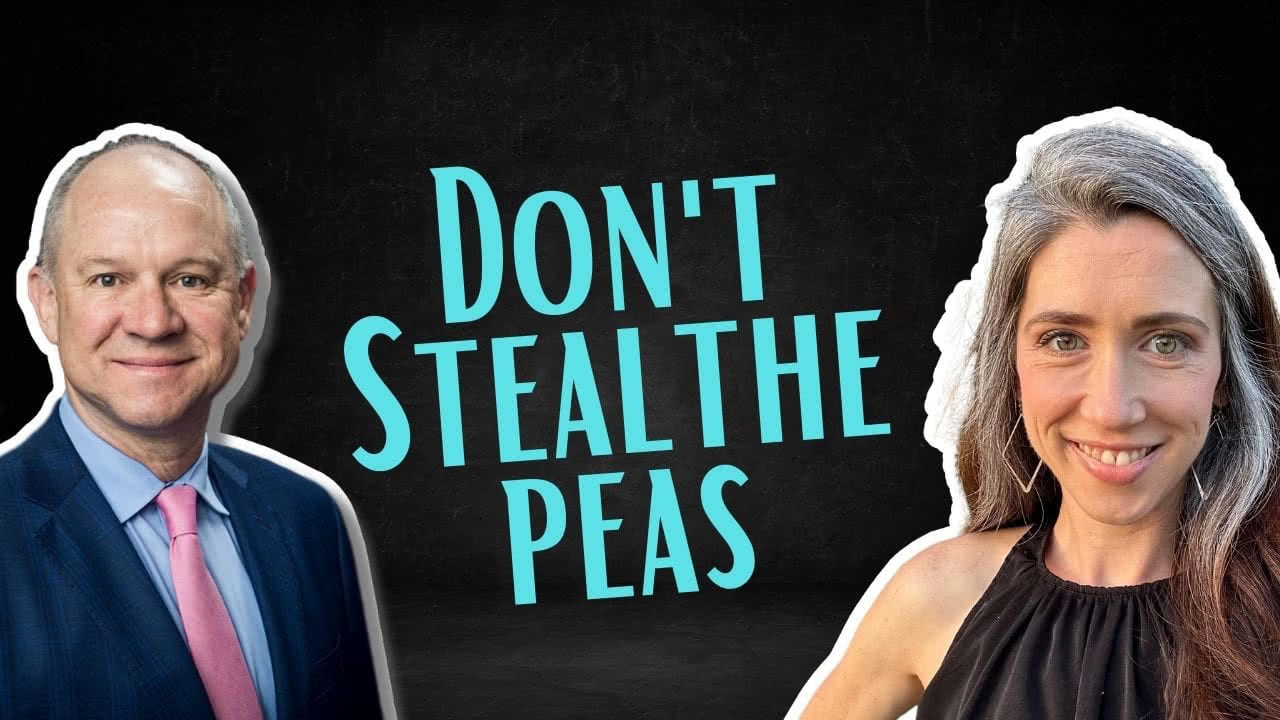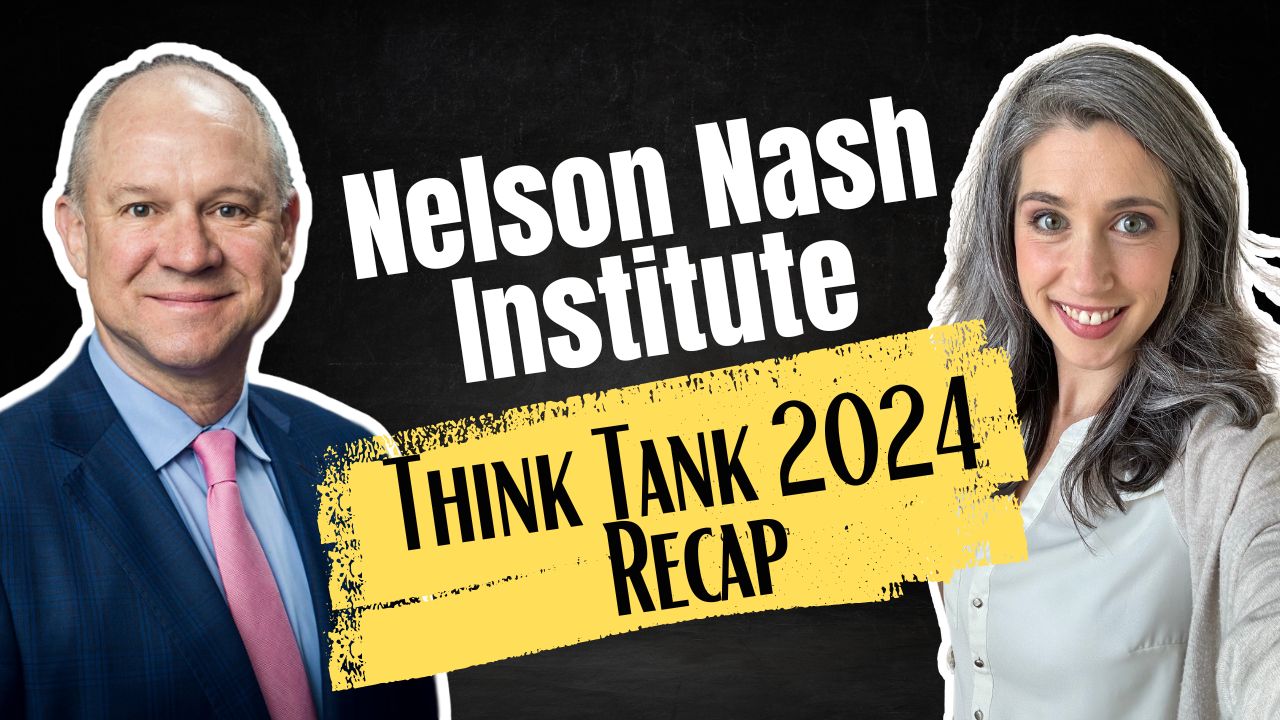
Becoming Your Own Banker, Part 2: Don’t Steal the Peas
Infinite Banking is an exercise in imagination. And in an act of imagination, Nelson Nash introduced a powerful example of how to capitalize on a whole life insurance policy and be an honest banker. He often referred to this concept as “don’t steal the peas,” which he explains in his book, Becoming Your Own Banker.
Today, we’re going back to this book, the “source” of IBC, and unpacking this idea of “don’t steal the peas.” That means examining the principles that make the Infinite Banking Concept work, and how understanding the fundamentals allows you to change your financial life. If you’re ready to jump into the conversation, learn from the original text, and gain understanding and wisdom… tune in now.
Podcast: Play in new window | Download (Duration: 57:15 — 65.5MB)
Subscribe: Apple Podcasts | Spotify | Android | Pandora | RSS | More
Table of contents
An Exercise in Imagination
Nelson Nash said it often: Infinite Banking is an exercise in imagination. So what does this mean, exactly? The way Nelson saw it, if you understand how to think about problems, the solutions will become clear. Imagination is simply a method of thinking about things—it’s how we re-envision what we experience. That can be used to see problems in a new light, one that yields new results.
[9:57] “Imagination is all about a thought process, and getting your mindset in a position to be able to see the capability and the possibility of what you can do in your financial life. And to recognize strategies and tools that will help you do that even better.”
Imagination is how humans achieve innovation. Our ability to see problems in new ways is the reason we have advancements in math, science, technology, and any other field conceivable. We can say the same for finance. And Nelson Nash’s idea of “don’t steal the peas” is a perfect act of imagination that explains the foundation of IBC and why it works so well.
Being a Good Business Owner
Let’s imagine, together, that you are a business owner with a thriving grocery store. As a human being, you also have a need for groceries. So you are both owner and customer. That is assuming you’re not shopping with your competitor.
Keep in mind that as the owner of this store, you need a lot of capital to get started. You want a prime location, a pleasant building for your patrons to be in, and furniture to display your wares. Then, of course, you have the costs of keeping up the store like paying employees, buying stock, maintaining the building, and other overhead costs.
Since you own the store, you might think it’s no big deal to grab something off the shelves every once in a while. A can of peas, so to speak. You can simply write it off as a loss, right? The truth, though, is that it’s not a wash. You’re actually reducing your future value.
The thing about a business is that eventually, you want to sell it. Maybe not this generation, but it’s a possibility. And when you do, that buyer is going to look at your Profit and Loss statements. To get as much value as possible in the sale, you want to have proof of a profitable business. Yet if you spent your entire life taking groceries from the back room, you were actually stealing from your future self. In fact, you’re even reducing your present cash flow by taking what you want instead of paying for it.
Don’t let your business eat the cost. Instead, be an “honest grocer” by buying what you want. This will flow back to you now in your income, and later if you sell the business.
Don’t Steal the Peas
If you’re having trouble imagining how detrimental it can be to steal the peas, let’s keep this thought going. Let’s talk about the peas, specifically. Let’s say a can of peas comes to your business through the “back door” when you buy it. And every can of peas that comes in through the back door costs you about 57 cents. Every can you sell goes for 60 cents, and leaves through the front door with the customer who buys it.
There’s only a 3-cent margin on that sale, which means that you’re relying on volume to make a profit on the peas alone. To recoup the cost of a single can of peas, you’d have to sell 20 cans. If you grab a can of peas from the back room, that’s a significant number of sales required to break even on what you took.
You’re entitled to do it, it’s your store after all. However, if you do this every single time you grocery shop, you’re creating more and more work for your store to keep up with. That’s not good for the profitability of your store if it takes 20 cans of peas to cover the loss of one can. On a large scale, this is devastating your profit margin.
Not to mention, you’re modeling to your employees that it’s okay to steal the peas.
[41:58] “More businesses fail for this reason than any other thing.”
What Does “Don’t Steal the Peas” Have to Do With Life Insurance?
So now that we’ve entertained this exercise in imagination, let’s apply it to whole life insurance and IBC. Your infinite banking policy is the business, in this example. You want it to be successful by paying your premiums and PUAs so that you have ample cash value. Your goal as the policy owner is to store as much capital as possible. However, you also have a need to access this capital at various points over your life. (Hopefully, you see the correlation, here.)
If you decide to access your capital with a policy loan sometime, you can do that and never actually pay the loan back. Your cash value acts as collateral to the loan in the “worst case” scenario, which means you could be off the hook if you choose. However, by not doing so, you’re negatively impacting the amount of capital you can now access, as well as your future death benefit.
On the other hand, by choosing to be an honest banker and repay your loans, you replenish your pool of capital and maximize your death benefit. It’s all about integrity and whether you want to help your future self or not.
So, will you steal the peas, or will you be the honest grocer?
Book A Strategy Call
Do you want to coordinate your finances so that everything works together to improve your life today, accelerate time and money freedom, and leave the greatest legacy? We can help! Book an Introductory Call with our team today https://themoneyadvantage.com/calendar/, and find out how Privatized Banking, alternative investments, or cash flow strategies can help you accomplish your goals better and faster. That being said, if you want to find out more about how Privatized Banking gives you the most safety, liquidity, and growth… plus boosts your investment returns, and guarantees a legacy, go to https://privatizedbankingsecrets.com/freeguide to learn more.
Nelson Nash’s Legacy: Think Tank 2024 Recap
Embark on a transformative financial odyssey with us as we reflect on our profound experiences at the Nelson Nash Think Tank for 2024. Unlock the doors to personal economic empowerment with the Infinite Banking Concept (IBC), a brainchild of the late Nelson Nash that revolutionizes the use of dividend-paying whole life insurance. We shed light…
Read MoreBecoming Your Own Banker, Part 25: Uninsurability Hacks
Do you want to use Infinite Banking, but you’re uninsurable? Today we are discussing uninsurability hacks! Don’t worry, uninsurability ISN’T a game-stopper for using Infinite Banking to build your own banking system. That means you can still reap the exponential reward of dividends and interest that grow with uninterrupted compounding, store liquid cash reserves that…
Read More


